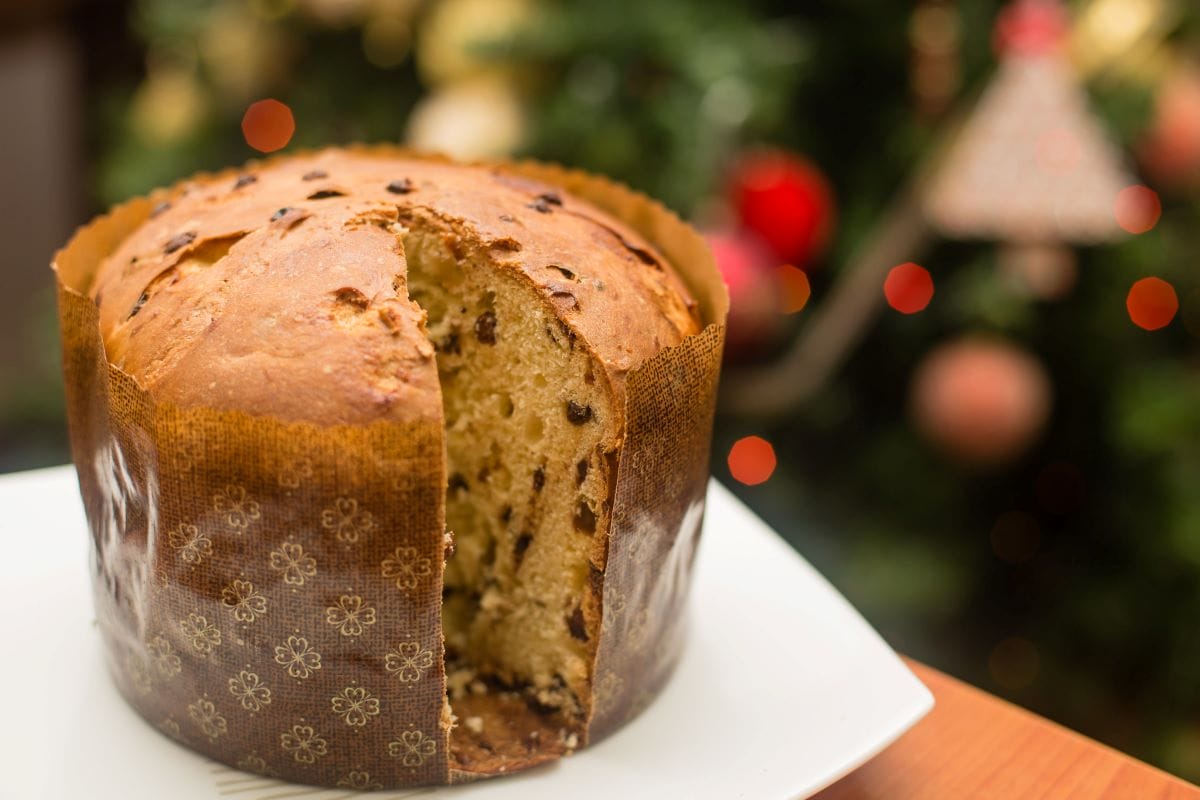
Panettone to Pangiallo: Your Guide to 6 Iconic Italian Christmas Breads
October 16, 2025
Italian Christmas breads like panettone, pandoro, and panforte are iconic holiday treats rich in festive tradition. Their names – which all include the word “pane” or “pan,” would make you think you think they’re all breads. But guess again!
These tasty Christmas treats aren’t all really breads. You might be wondering how these breads differ. Keep reading to learn their origins, how they’re made, and what makes them unique.
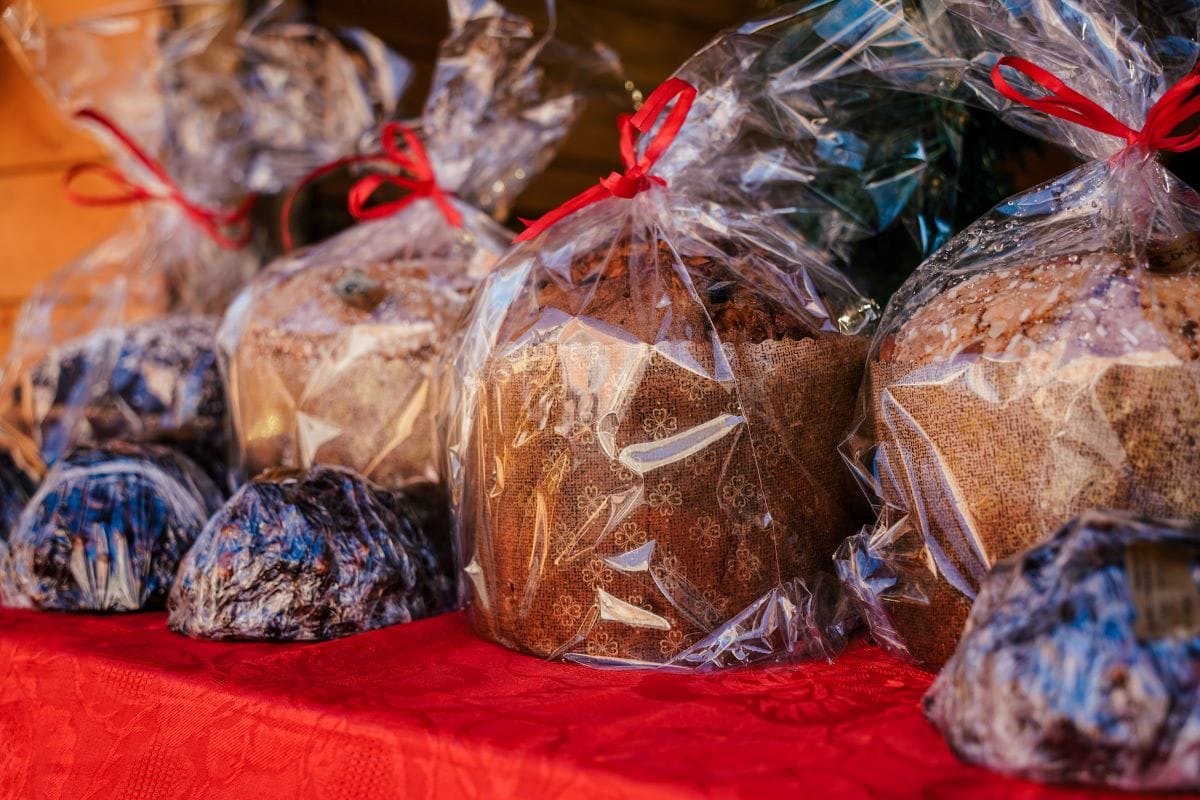
Check out the local market to pick up one of these traditional Italian Christmas breads. Photo credit: Gabriella Clare Marino
Table of Contents
ToggleMust-Try Italian Christmas bread
Pandoro: The Golden Star of Italian Christmas
This sweet Christmas bread from Verona is star-shaped and dusted with powdered sugar (some say to make it look like the nearby mountains).
The name pan d’oro means “bread of gold,”. And since white bread cost a lot in the Middle Ages and was consumed only by the wealthy, that’s exactly what this would have seemed like to the Veronese families who pinched pennies to enjoy this treat once a year. Today, you’ll sometimes see a hole cut in pandoro and filled with chantilly cream or gelato.
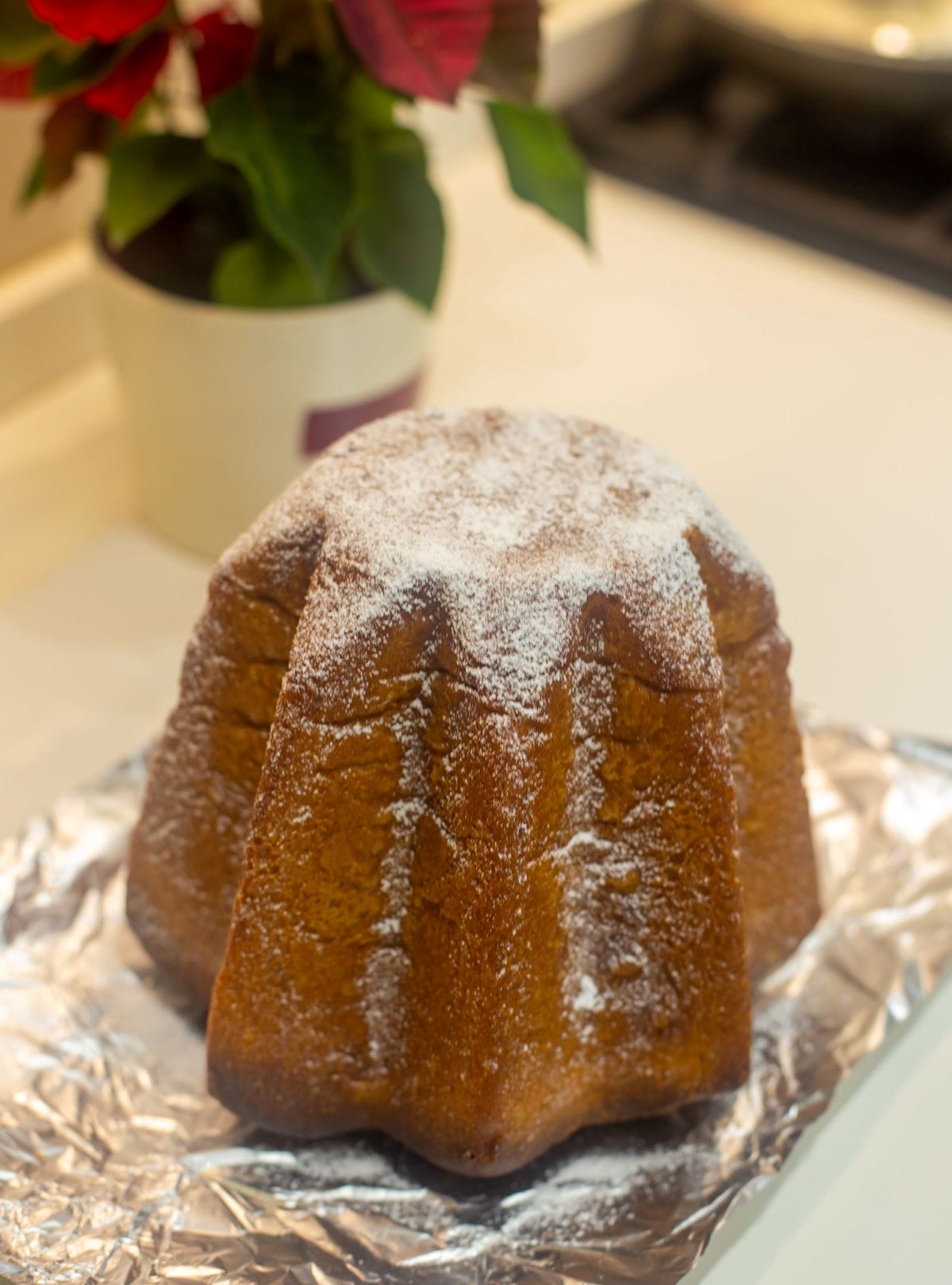
The dusted vanilla-scented icing on Pandoro resembles the snowy peaks of the Italian Alps. Photo credit: N i c o l a
Pandolce: Genoa’s Favorite Christmas Bread
Meaning “sweet bread,” pandolce is the variety from Genova. Legend has it that the famed 16th-century Doge of Genova, Andrea Doria, invited Genovese chefs to submit recipes for a food that would represent the Republic’s wealth – as well as be nutritious, durable and suitable for long sea voyages. And so, pandolce was born.
It’s dense, crumbly, and filled with spices and candied fruits. According to tradition, a part of the pandolce should be set aside for the poor, while another should be kept for the feast day of St. Blaise on February 3rd.
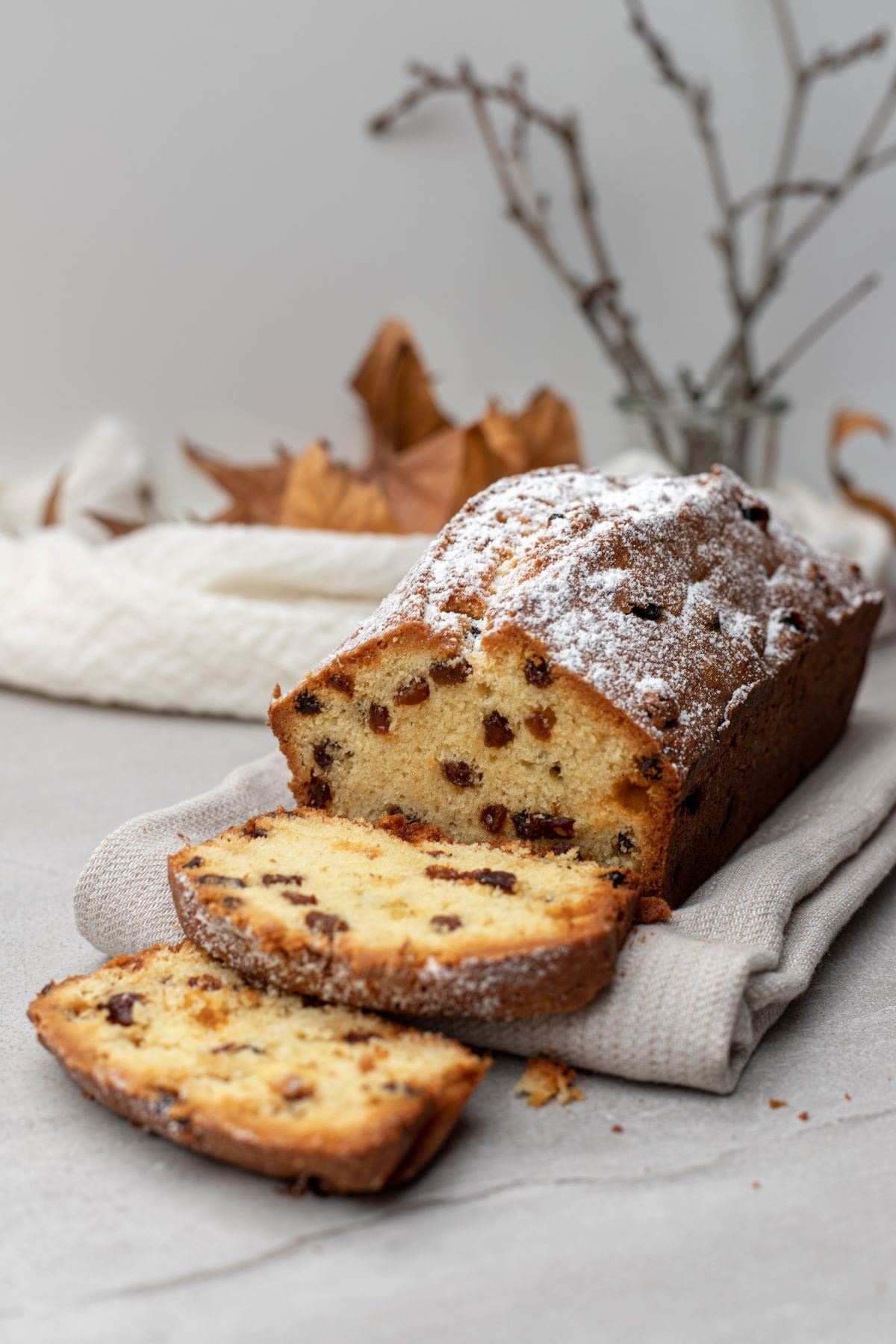
Which Italian Christmas bread is your favorite? Is it Pandolce? Photo credit: Yulia Khlebnikova
Panforte: Siena’s Spiced Christmas Treat
Despite the name, this isn’t really a bread at all. Instead, it’s a chewy, dense fruitcake from Siena, heavily flavored with honey, cloves, coriander, cinnamon and white pepper.
Panforte, is considered to be the oldest of the Italian Christmas breads, and dates back to the Middle Ages! Thanks to its durability, Crusaders carried panforte with them on their quests. Records show that cakes of panforte were paid to Sienese monastery as a kind of tithe in 1205.
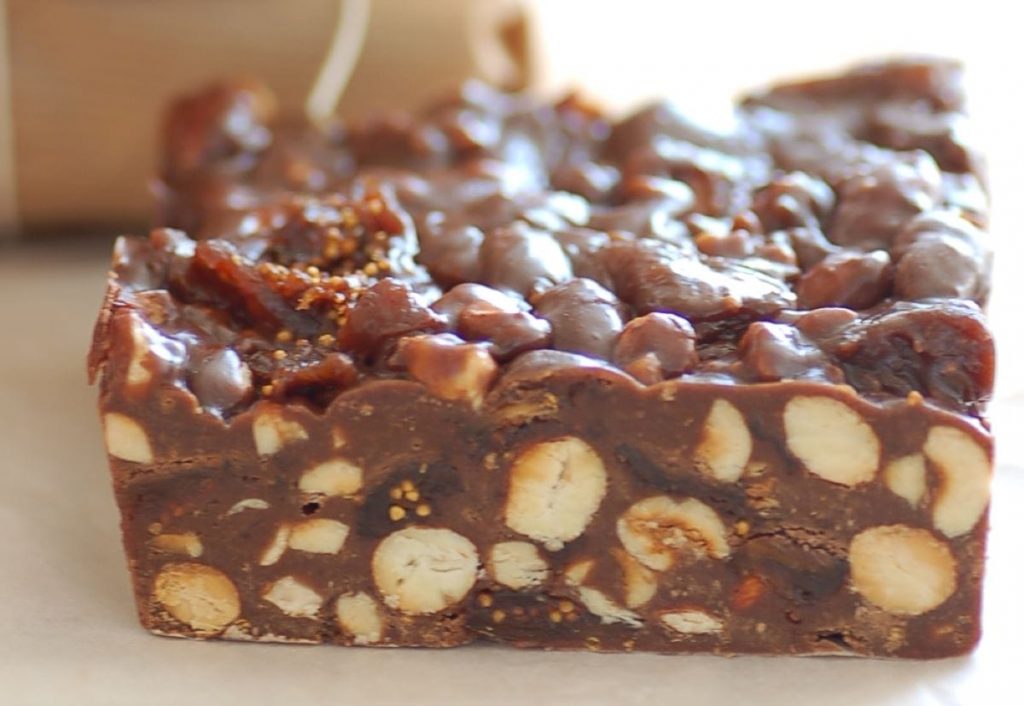
Enjoy your panforte with an espresso. Photo credit: jules
Panpepato: The Peppery Bread of Italian Christmas
Not really a bread, either, panpepato (“spiced bread”) is a heavy gingerbread cake spiced with cloves, cinnamon, nutmeg, honey, nuts, dark chocolate, and candied fruit. It dates back to 15th century Ferrara, although some say its origins are Tuscan, and the cake’s shape is supposed to look like a clergyman’s cap.
The first written reference to panpepato showed up in 1465, in a record book for the noble house of d’Esta. The reference said that the Duke gave his butler a gold ducat, telling him to put it inside the panpepato being served to the guests.
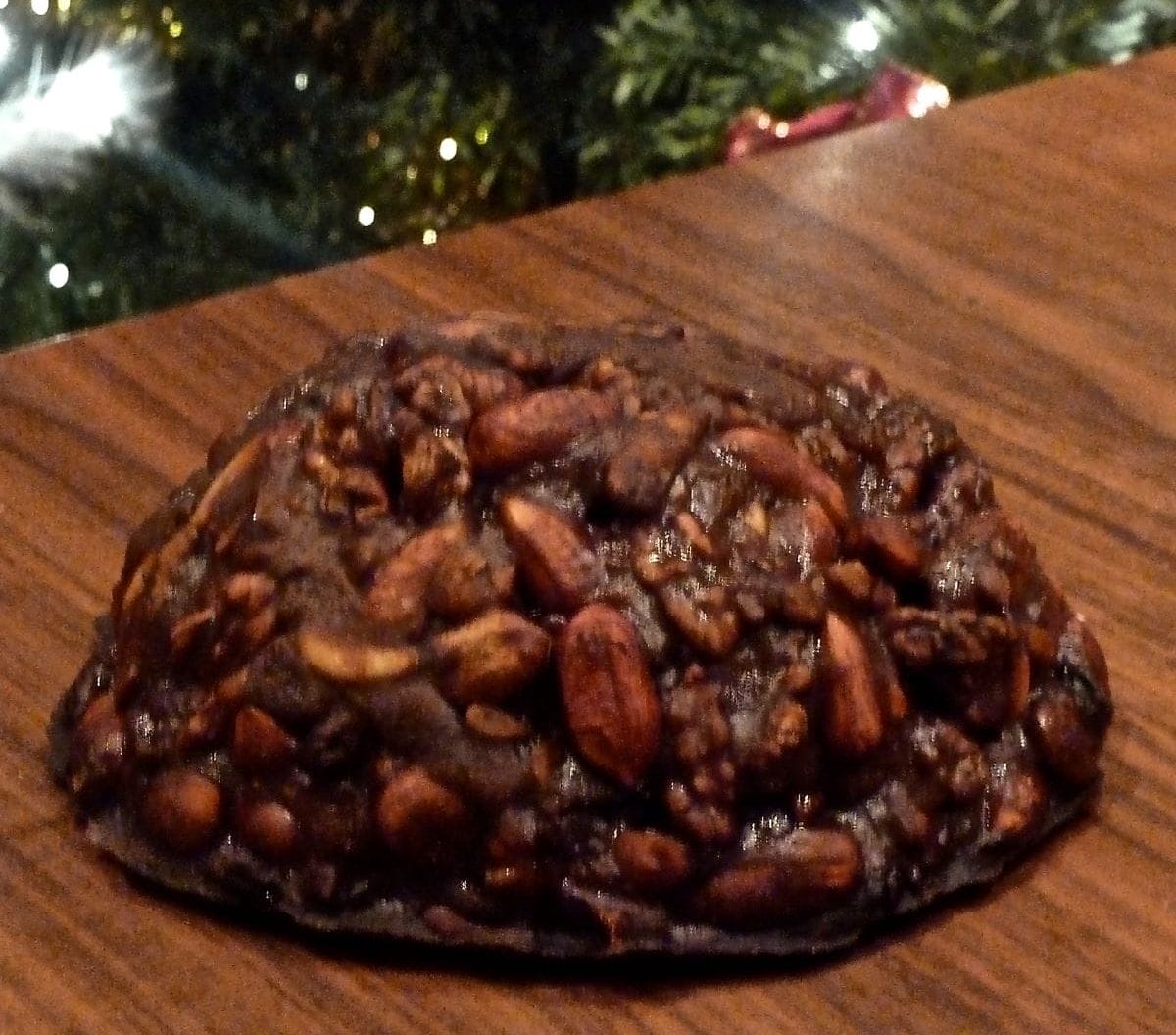
Did you know that panpepato is a type of panforte? Photo credit: Luca Sbardella
Panettone: Italy’s Iconic Christmas Cake
Hailing from Milan, panettone is a sweet, dome-shaped bread loaf studded with raisins and candied citrus peels. Interestingly, the dough takes several days to make: like sourdough, it has to be cured.
Panettone represents celebration and abundance, symbolizing prosperity and joy. It is no surprise that is it therefore traditionally enjoyed at Christmas, It’s perhaps the most famous Italian festive dessert and one of the few widely available outside Italy, especially during the holiday season. While the classic version features fruit, you’ll also find delicious variations with chocolate chips or creamy fillings.
Serve it with a hot beverage or a sweet wine like Moscato d’Asti.

Take a slice out of this panettone. Photo credit: N i c o l a
Pangiallo: Rome’s Golden Christmas Bread
From Rome and the Lazio region, pangiallo, a golden yellow (giallo) bread filled with nuts, raisins, spices, and candied fruit (including lime peels), has ancient origins. Pagan Romans baked up pangiallo’s predecessor during the winter solstice as offerings to facilitate the sun’s return.
The nuts, though, are a recent addition; previously, Romans used dried plum and apricot kernels instead because nuts were simply too expensive.
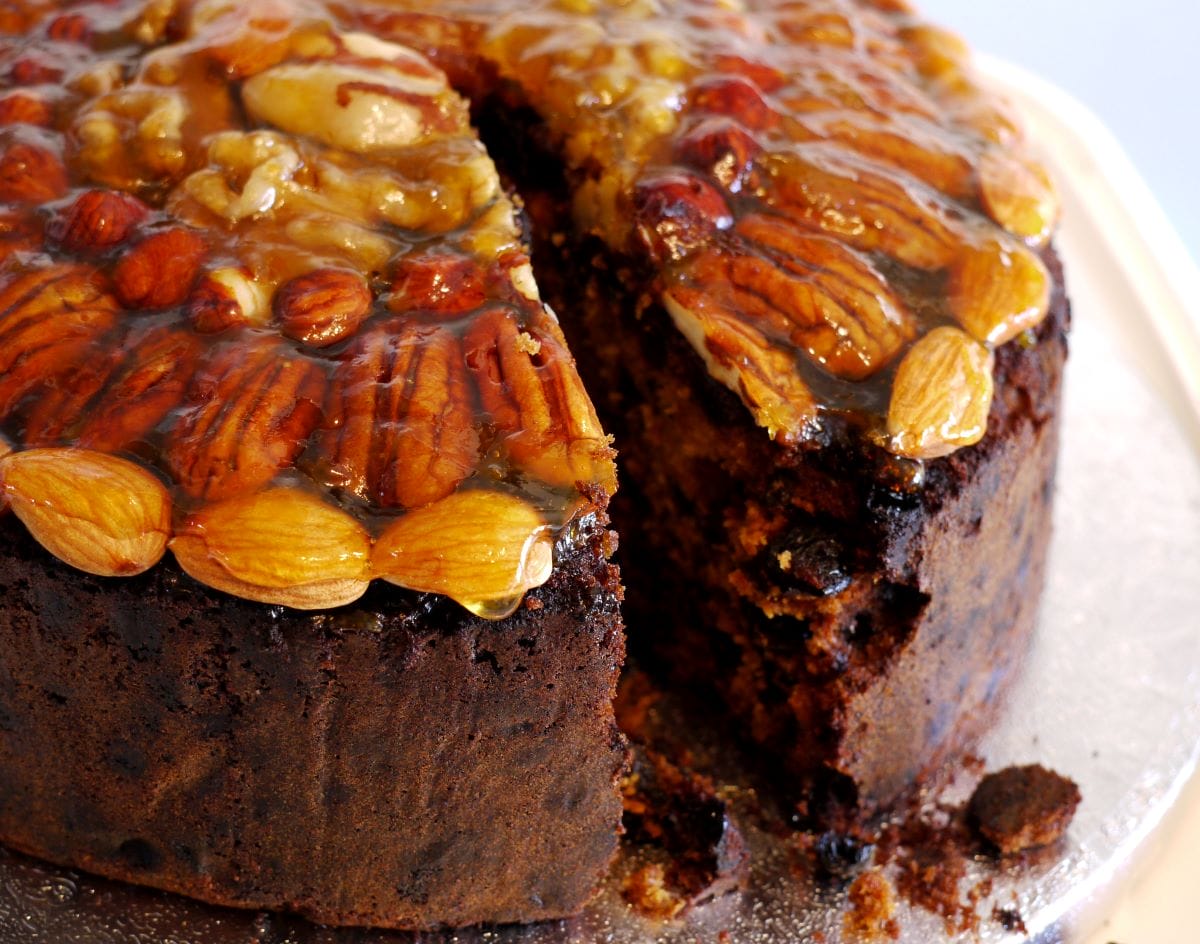
Pangiallo is a Roman Christmas bread made with dried fruits, nuts, and honey, with a golden yellow crust. Photo credit: Brett Jordan
FAQ – Italian Christmas bread
Are Christmas breads like panettone allowed in carry-on or checked luggage?
Yes! Panettone is typically allowed in both carry-on and checked luggage as it’s a packaged, non-liquid item. Panettone is also usually packaged to travel well, making it a great souvenir. We also love how Italian Christmas breads often come in festive containers. Ensure it’s properly sealed to avoid damage during transit, and always check customs regulations for food items if traveling internationally.
Where can I buy authentic Italian Christmas bread?
Almost every Italian supermarket will have Christmas breads like panettone around the holidays. They’re beautifully packaged and represent tradition and festivity. However, we recommend seeking out specialty Italian bakeries and gourmet food stores for the best of the best! Alternatively, you can also purchase these Christmas sweets from online shops like Bauli or Loison.
How should I serve Italian Christmas bread?
- Pandoro: Warm and sprinkle with powdered sugar.
- Pandolce: Slice thinly and enjoy with a glass of sweet wine or a cup of tea.
- Panforte: Serve with espresso or Vin Santo.
- Panpepato: Serve in small wedges with strong coffee or dessert wine to balance its flavour.
- Panettone: Pair with mascarpone cream or dessert wine.
- Pangiallo: Best enjoyed slightly warmed, with a drizzle of honey or alongside a glass of Vin Santo.

Coffee with Italian Christmas bread? Don’t mind if we do!
Can you make Italian Christmas bread at home?
Yes, especially simpler options like panforte or pangiallo. We recommend only enthusiastic bakers tackle panettone and pandoro, which require more time and skill! You will be able to find recipes and tutorial videos online for sure.
How much do Italy’s main Christmas breads cost?
Prices vary depending on the region and quality, but here’s a general guide: classic panettone and pandoro usually range from €10–€30 for artisan versions, while mass-produced ones can be found for €5–€10. Regional specialties like panforte from Siena and pandolce from Genoa, typically cost between €8–€25, depending on size and ingredients. Premium, handmade varieties or those with gourmet fillings (like pistachio or chocolate) can reach at least €30 or more
What other Italian Christmas foods are traditionally eaten?
We’re glad you asked! In addition to sweet treats like panettone, you can find other tasty bites like seafood, pasta, and meat dishes. Our friends at Devour Tours have a full guide to Italian Christmas foods.
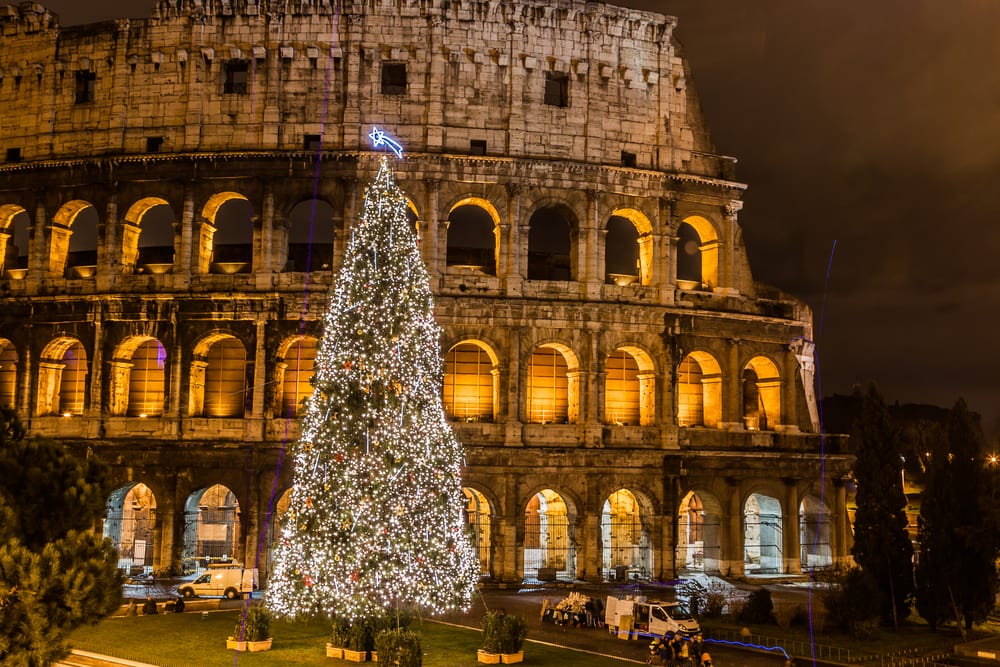
Dreaming of tasting Italy’s festive flavors in person? From the sweet aroma of panettone in Milan to traditional holiday treats across the country, experience the magic of Italian Christmas firsthand. Join a Walks of Italy tour and celebrate the season where these beloved traditions were born.
by Beatrice M.
View more by Beatrice ›Book a Tour

Pristine Sistine - The Chapel at its Best
€89
1794 reviews

Premium Colosseum Tour with Roman Forum Palatine Hill
€56
850 reviews
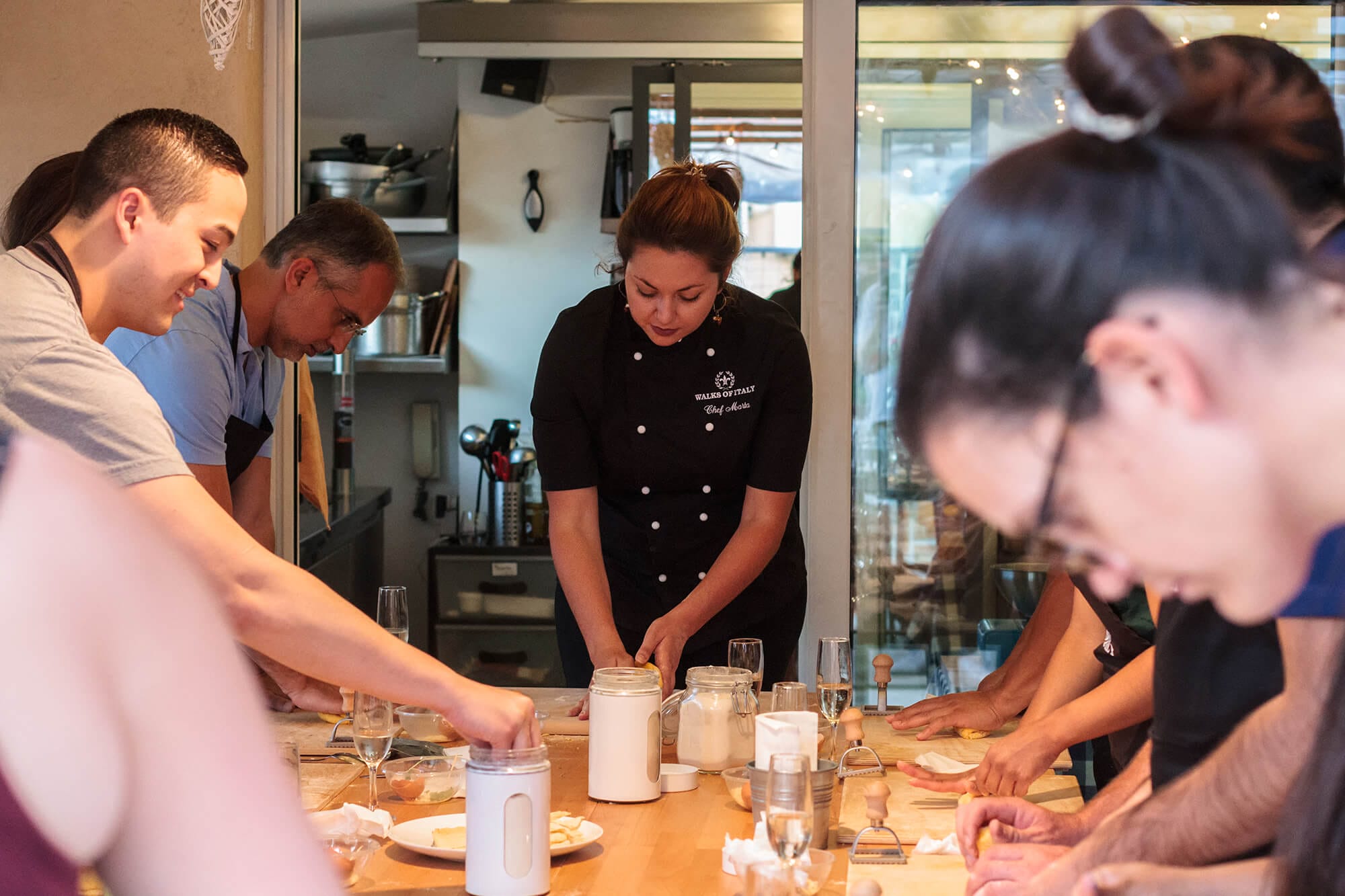
Pasta-Making Class: Cook, Dine Drink Wine with a Local Chef
€64
121 reviews

Crypts, Bones Catacombs: Underground Tour of Rome
€69
401 reviews

VIP Doge's Palace Secret Passages Tour
€79
18 reviews
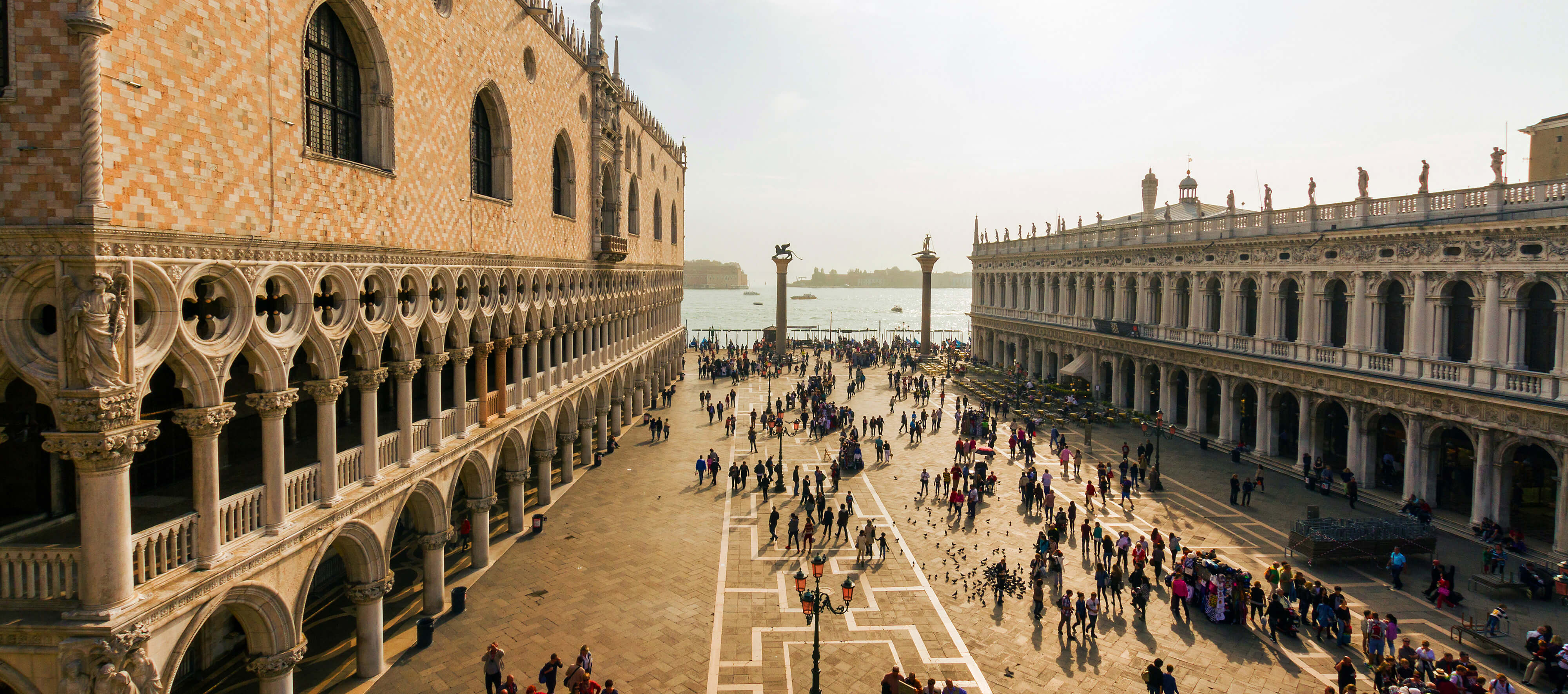
Legendary Venice: St. Mark's Basilica, Terrace Doge's Palace
€69
286 reviews









